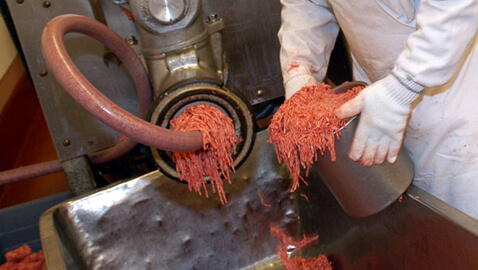
According to the manufacturer, the bits are processed by heating and spun to remove most of the fat first of all. Then the lean mix is made into blocks by compression and exposed to ammonium hydroxide gas to eliminate the chance presence of bacteria such as E. coli and salmonella. The result, which has been used for years, meets the food safety standards of the federal government and is 97 percent lean beef. Critics call it “pink slime.”
Recent public outbursts and adverse opinions have led to business loss of the company and it has also reduced production at the South Sioux City plant.
To weigh the position of the manufacturers against the adverse opinions expressed by a portion of the public, five state governors led by Iowa Gov. Terry Branstad have decided to visit the single plant still running.
Gov. Branstad would be joined at the South Sioux City, Nebraska, by Nebraska Lt. Gov. Rick Sheehy and South Dakota Lt. Governor Matt Michels. Kansas Gov. Sam Brownback, and Texas Gov. Rick Perry would also visit the last plant of Beef Products Inc. still producing the criticized product.
Branstad told the media about the company that “They’re been a victim of a smear campaign, and I think we need to do all we can to try to counter this.”
While critics call the product an example of unappetizing industrialized food production, the choice remains with consumers whether or not to buy. But there are consumers for the product who have preference for low-cost and high grade beef mixes as shown by the number of plants that have been shut down after the alleged ‘smear campaign.’ They used to run, and workers had jobs, because there was a demand for the product and as long as it is not proven unhygienic or below standards in any manner – not all of us can choose to dine on champagne and caviar, not that we don’t want to.






































